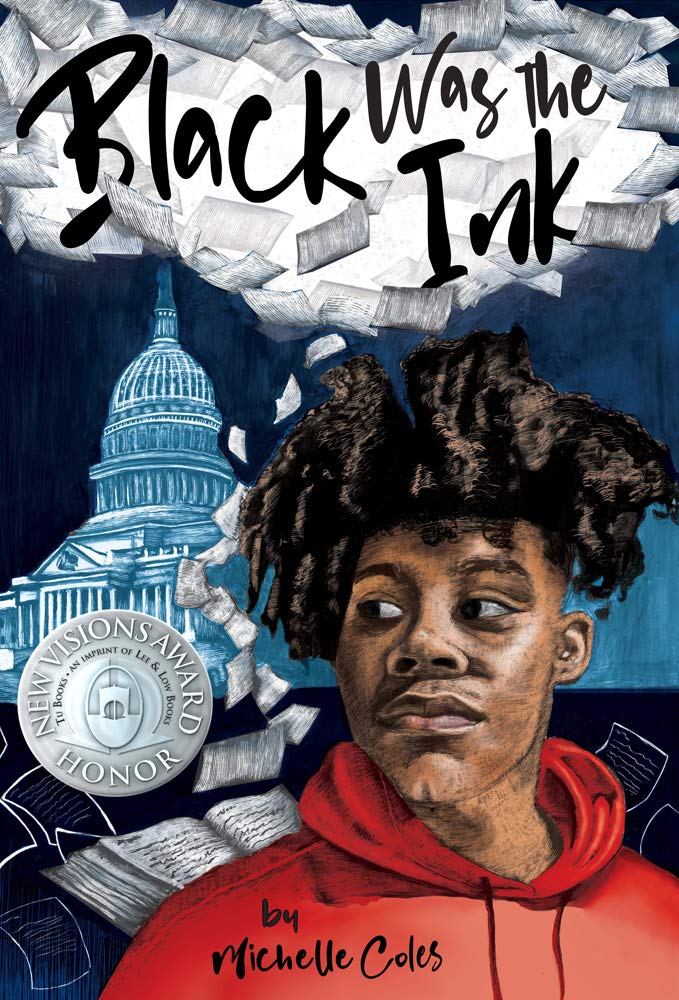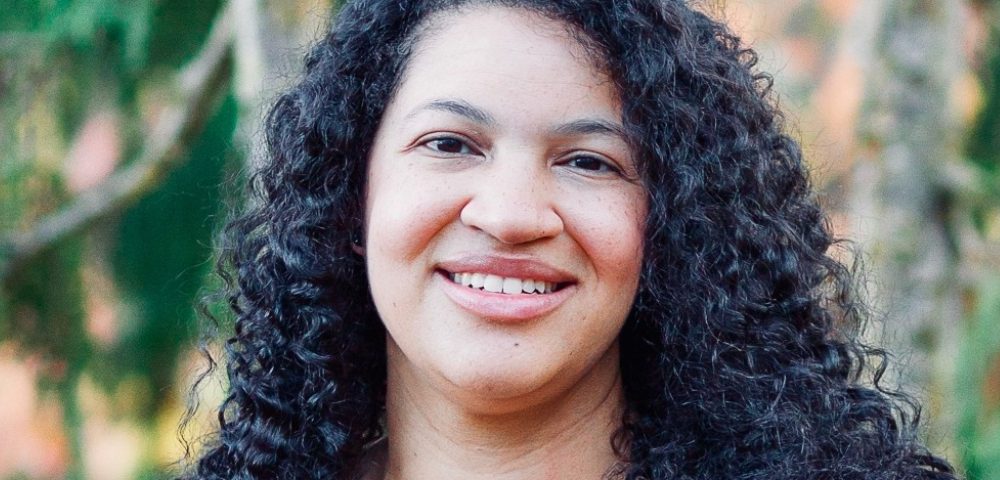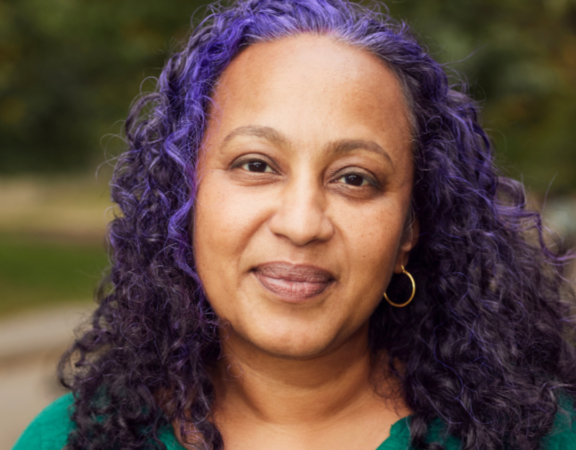Debut You is an interview feature on Our Stories Matter blog. Debut authors, who have released or have upcoming releases in 2021, are given five questions to answer about themselves and their book. Currently, the questions are the same for all authors. We hope you enjoy getting to know Michelle Coles and can offer your support. Go here for more “Debut You” features.
Describe yourself in five words, then expound on one of them.
Loving, joyful, resourceful, optimistic, and persistent.
Persistent. As a child, I learned The Serenity Prayer, “God grant me the serenity to accept the things I cannot change, courage to change the things I can, and wisdom to know the difference,” and it stuck with me. Guided by an innate thirst for justice, I soon realized that there was a lot I wanted to change, which led me to pursue a career as a civil rights attorney. The law is a great way to bring about change, but I’m in awe of the transformative power of art. If done well, the reader can see the world through someone else’s eyes, which changes them forever. Black Was the Ink is my attempt to share my perspective as a descendant of enslaved people in a country still grappling with the legacy of slavery. I hope this story can help open people’s hearts about the dire need to address the deep-seated effects of racism in America.

Explain your book’s journey—how long did it take—from idea to publication?
Black Was the Ink was inspired by the Mother Emanuel massacre that occurred in Charleston, South Carolina on June 17, 2015. At the time of the massacre, I was on maternity leave with my second son, and I struggled with how to prepare my young Black boys to enter a world filled with so much inexplicable hate towards people that look like them. I was surprised to learn that the founder of Mother Emanuel Church, Denmark Vesey, was also the leader of one of the largest attempted slave rebellions, and Pastor Richard ‘Daddy’ Cain, who led the church during Reconstruction, also served as one of the first Black members of Congress. At that moment, the link between slavery, the collapse of Reconstruction, and the modern state built on a legacy of white supremacy crystallized for me, and this book began to take shape.
As a lawyer, I am used to writing and researching, but creative writing was a new challenge for me. I read everything I could get my hands on about the Reconstruction era, and once I had a good understanding of the facts, I started crafting a story that showed the connections between the present and the past. Sadly, there were a lot of parallels! For example, did you know the arguments the ex-confederates used to try to keep the first Black senator, Hiram Revels, from joining Congress was the same specious argument conservatives spewed in an attempt to discredit President Obama—that he wasn’t a U.S. citizen despite all evidence to the contrary?
In 2018, I submitted my manuscript to Lee and Low Book’s New Visions Contest for first time authors of color and experienced the shock of my life when I learned I placed second. Lee and Low, through their imprint Tu Books, made an offer to publish my book and assigned an amazing editor, Elise McMullen-Ciotti, to work with me. She, in turn, found an incredible artist, Justin Johnson, to do the cover art and illustrations throughout the book, and the rest is history. I am so excited that after six long years, Black Was the Ink is finally coming to a bookstore near you on October 12, 2021.
Balance is the key to successful living. How do you balance the act of writing with other priorities, such as your job, family or fun activities, and self-care?
I wear a lot of hats. I’m a wife, mom of four boys, civil rights attorney, real estate agent, sister, daughter, granddaughter, best friend, and now author. I do my best when I have a lot on my plate because it forces me to stay focused on the task at hand, complete it to the best of my abilities, and then move on. It’s important to remember not to let the perfect be the enemy of the good. Also, it helps that I work on projects that I’m really passionate about. It takes a lot of hard work and endurance to write a book, but when you’re passionate, staying up to 3 a.m. night after night does not feel like work.
Understanding your audience is essential. What do you know for sure about the audience you are writing for?
I wanted to write a young adult novel so my children, the oldest of whom is now eight, could have this knowledge about Black and American history as soon as they could possibly understand it. I reflected on my mindset as a teenager, my brief experience as a middle school English teacher, and thought about children I’ve met in more despondent situations. A lot of my civil rights work concerned people involved in the criminal justice system, and I tried to think about the many incarcerated black men and boys that I met there. I wondered if they knew the history I recount in this book, would their lives have turned out differently? Would they have felt empowered knowing how valiantly their ancestors had fought against oppression? Would this story inspire them to demand better from our government and continue the fight for justice?
I was thrilled to see so many people take to the streets in the wake of George Floyd’s murder in the summer of 2020. That was not a given at the time I started writing this book in 2015. I am hopeful my book arms these social justice warriors with even more knowledge, perspective, and history to help them successfully advocate for a more just and inclusive America.
Tell us about your book.
Black Was the Ink is a powerful coming-of-age story and an eye-opening exploration of the Reconstruction era that continues to define modern America. In Black Was the Ink, Malcolm is sent on a fantastical journey through Reconstruction-era America with the help of a ghostly ancestor while working in the present day to save his family’s farm in Mississippi from being claimed by the State.
After a harrowing interaction with the police at a local D.C. park, sixteen-year-old Malcolm is angry and despondent and feels like nothing good ever happens for teens like him. All he wants is to be left alone in his room for the summer to draw or play video games—but no such luck. With growing violence in his neighborhood, his mother ships him off to his father’s family farm in Mississippi, and Malcolm is anything but pleased.
A few days after his arrival, his great-aunt tells him that the State is acquiring the farm to widen a highway. It’s not news Malcolm is concerned about, but someone plans to make it his concern. One minute Malcolm is drawing in the farmhouse attic, and the next, he’s looking through the eyes of his ancestor Cedric Johnson at an America radically transformed by the Civil War. As Cedric, Malcolm meets the real-life Black statesmen who fought for change during the Reconstruction era: Hiram Revels, Robert Smalls, and other leaders who made American history. But even after witnessing their bravery, Malcolm’s faith in his own future remains shaky, particularly since he knows that the gains these statesmen made were almost immediately stripped away. If those great men couldn’t wholly succeed, why should he even try? Malcolm must decide which path to take. Can Cedric’s experiences help him construct a better future? Or will he resign himself to resentments and defeat?
Black Was the Ink
Justin Johnson | Tu Books | October 12, 2021 | YA | 400 Pages | Amazon | Bookshop | IndieBound
Connect with Michelle Coles
If you believe BCBA provides a valuable service, please take a few minutes to donate and support our mission to promote awareness of children’s and young adult literature by Black authors.
Amazon/Bookshop/IndieBound Disclosure: BCBA is a participant in the Amazon, Bookshop, and IndieBound Affiliate Programs. The affiliate programs offer participants the opportunity to earn fees by linking to Amazon, Bookshop, and IndieBound websites. Clicking on the book links will direct you away from this site. Thanks for your support!





